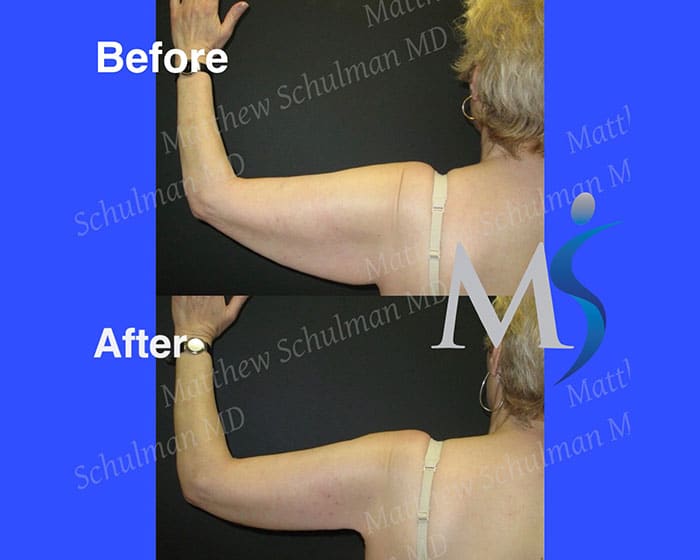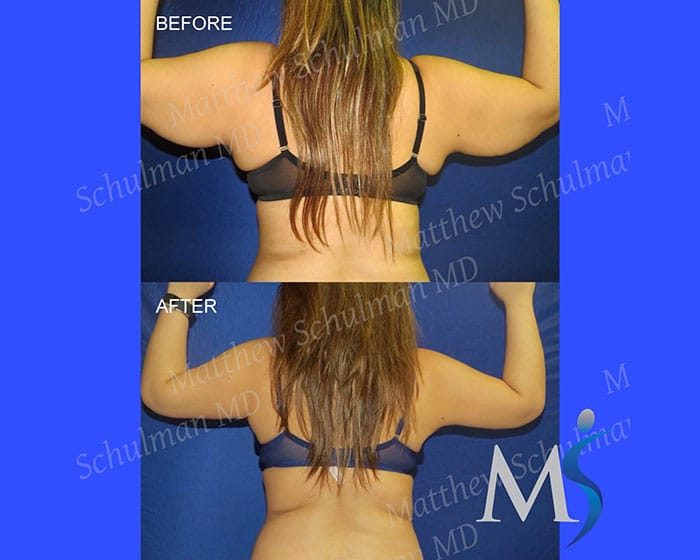How do I know if I need an arm lift?
An NYC arm lift surgery is specifically designed to remove the excess skin of the upper arm. If you have sagging skin when you outstretch your arm, you are likely to be a good candidate.
How is this different from arm liposuction?
Liposuction will remove the excess fat of the upper arm, but do nothing for the excess skin. If you have good skin quality and excess fat, you may be a candidate for a liposuction procedure. But, if you have some hanging skin, you may require skin removal and an arm lift surgery.
Is there a arm lift scar?
Yes. Because removal of the skin requires incisions in the skin, there will be a scar. This scar is located along the inner arm and/or in the armpit area. The exact location of the scars will depend on how much excess fat and excess skin you have and where the skin is located. Scars will fade over time, but will never completely go away, so you must be aware of this before undergoing an arm lift procedure. If you are wondering about the length and whether it will be a long scar or a short scar arm lift surgery often tends to result in a short scar.
Do I need anesthesia?
An arm lift surgery is typically done under either deep sedation or general anesthesia. It is done in our fully certified operating room and you are monitored the entire time by a Board Certified Anesthesiologist.
What is a mini arm lift?
A mini arm lift is a body sculpting procedure designed to enhance arm appearance. It involves reshaping arm tissue and eliminating excess, saggy skin, resulting in firmer, more refined arms. Mini arm lifts, also known as mini brachioplasties, are highly popular among our NYC patients.
How painful is arm lift surgery?
As a result, you will experience no pain during the procedure itself. However, it is typical to experience some discomfort in the hours and days following your surgery. This discomfort can be managed effectively with prescribed or over-the-counter pain medication.
How much weight do you lose with an arm lift?
While undergoing an arm lift surgery won’t lead to substantial weight loss, the removal of some tissue may result in a temporary decrease. It is anticipated that your weight will stabilize around six weeks post-surgery as swelling and bruising subside. Generally, individuals experience a weight reduction of 600-1800 grams through this procedure.



















